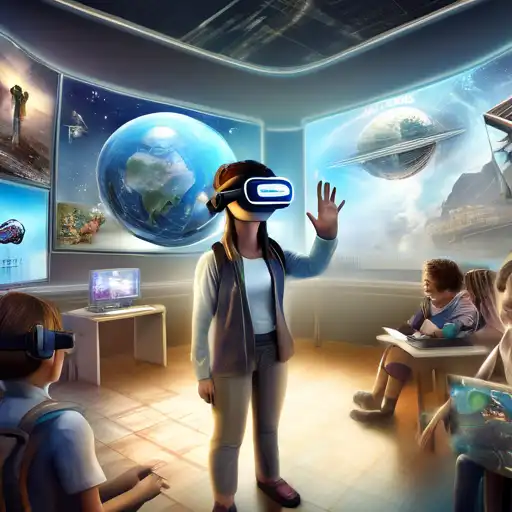Introduction to Virtual Reality in Education
Virtual Reality (VR) is rapidly becoming a cornerstone in the evolution of educational methodologies. By immersing students in a three-dimensional environment, VR offers an unparalleled interactive learning experience that traditional classrooms cannot match. This technology is not just a tool but a revolutionary approach to understanding complex concepts across various disciplines.
The Benefits of VR in Learning Environments
VR in education brings numerous advantages, including enhanced engagement, improved retention rates, and the ability to simulate real-world scenarios. For instance, medical students can perform virtual surgeries, and history students can witness historical events unfold right before their eyes. This hands-on approach fosters a deeper understanding and appreciation of the subject matter.
Challenges and Considerations
Despite its potential, the integration of VR into educational systems faces hurdles such as high costs, the need for technical expertise, and the development of curriculum-compatible content. However, as technology advances and becomes more accessible, these challenges are gradually being overcome, paving the way for widespread adoption.
Future Prospects of VR in Education
The future of VR in education is bright, with ongoing research and development aimed at creating more immersive and interactive learning experiences. As educators and technologists collaborate, the possibilities for enhancing education through VR are limitless. From virtual field trips to complex scientific simulations, VR is set to redefine the boundaries of learning.
Implementing VR in Your Educational Institution
For institutions looking to adopt VR, starting small with pilot programs can be an effective strategy. Partnering with VR content developers and investing in teacher training are crucial steps toward successful implementation. Additionally, seeking feedback from students and educators can help tailor VR experiences to meet educational objectives effectively.
Virtual Reality is not just the next frontier in education; it's a transformative force that is reshaping how knowledge is imparted and absorbed. By embracing VR, educators can provide students with a dynamic and engaging learning environment that prepares them for the challenges of the future.
For more insights on innovative learning technologies, explore our EdTech Trends section.
